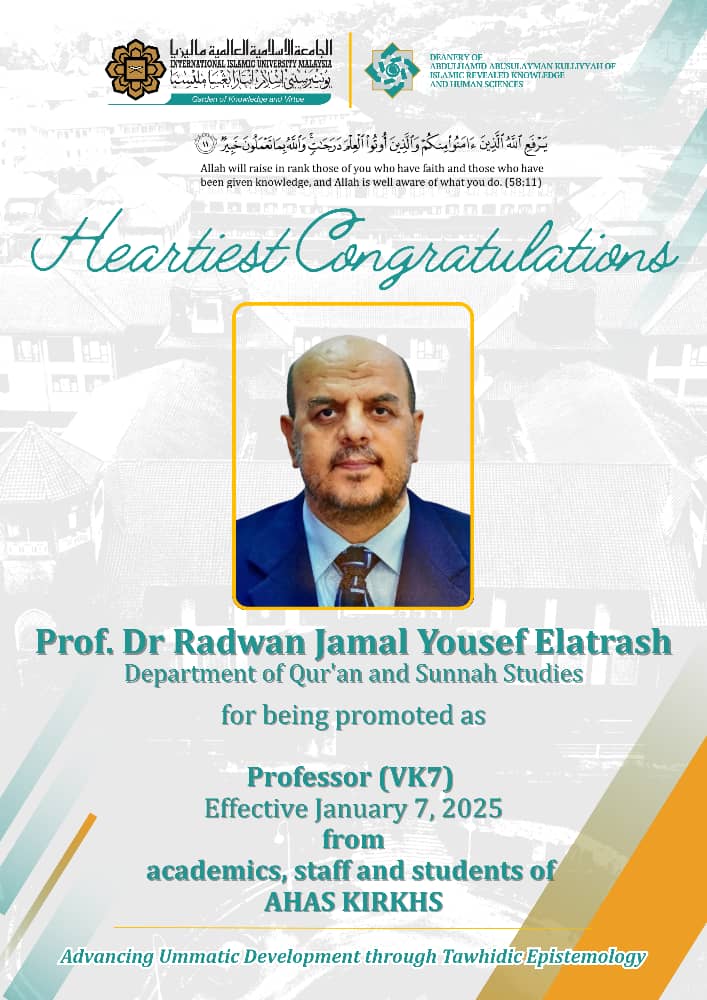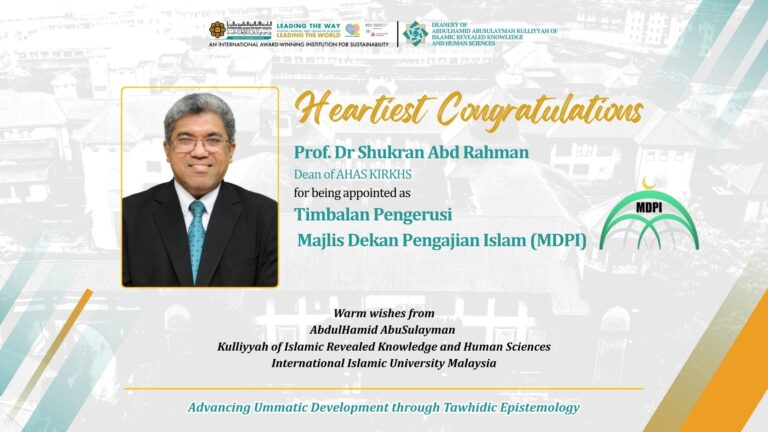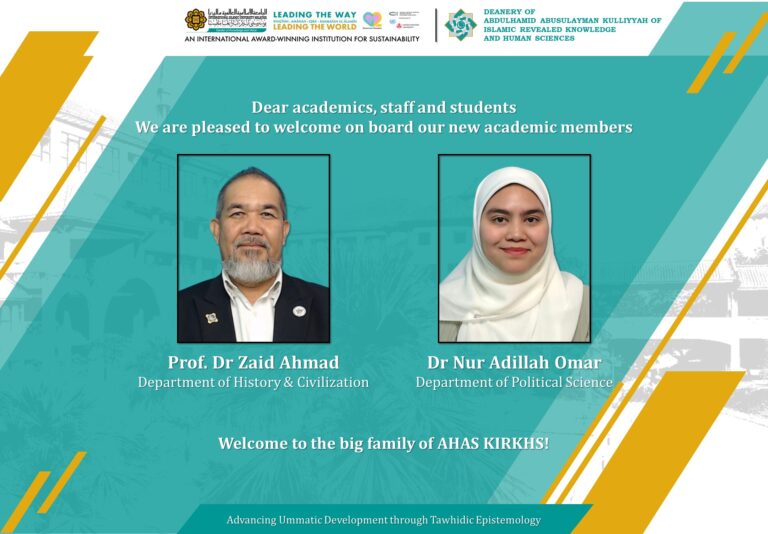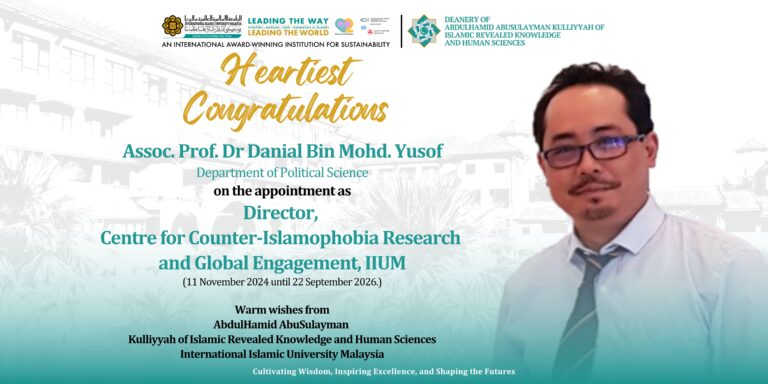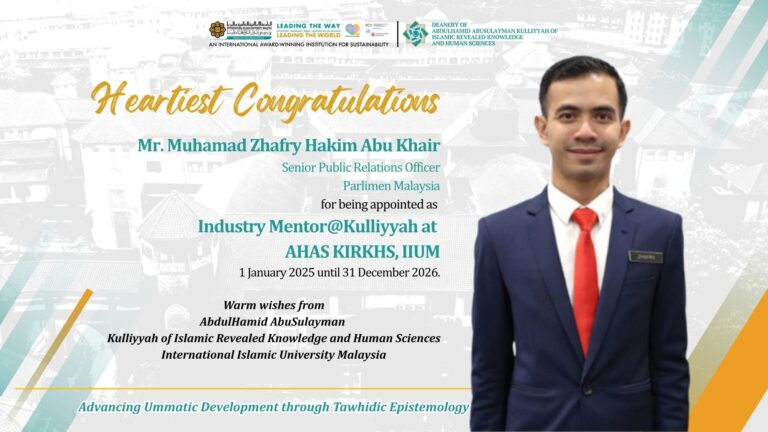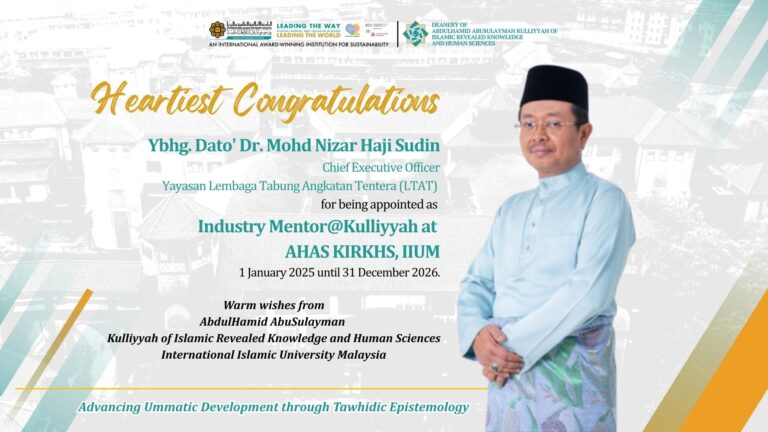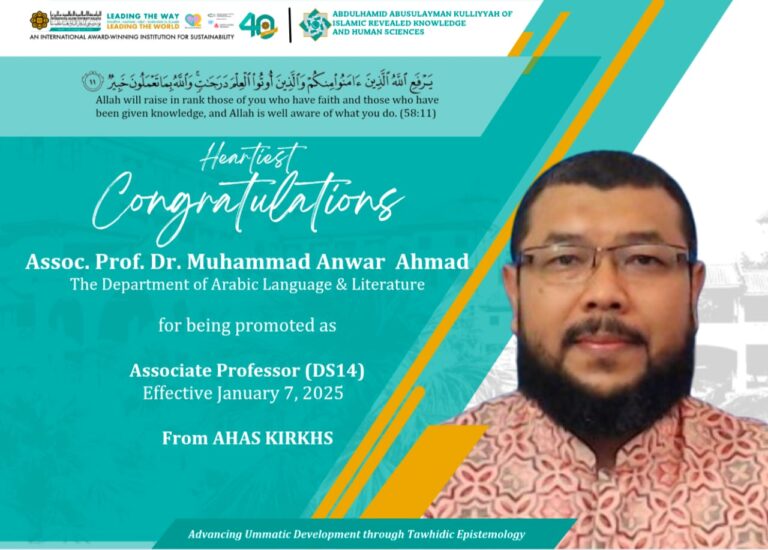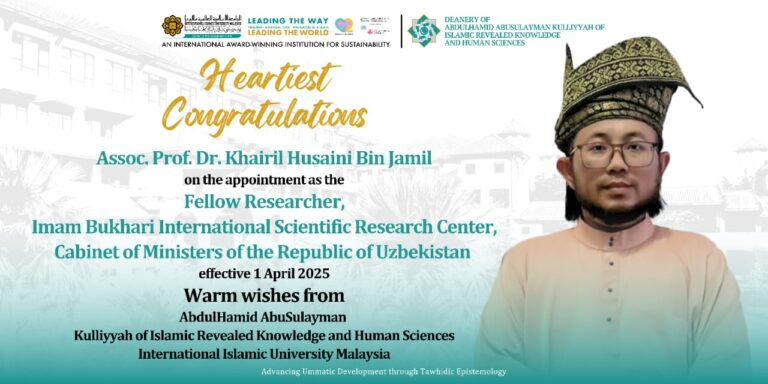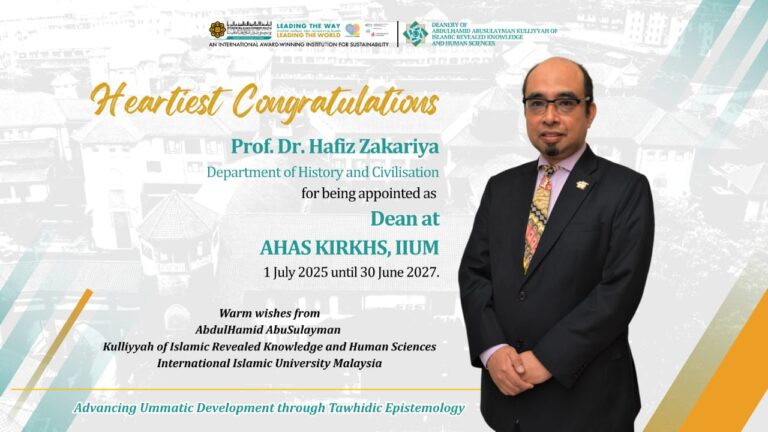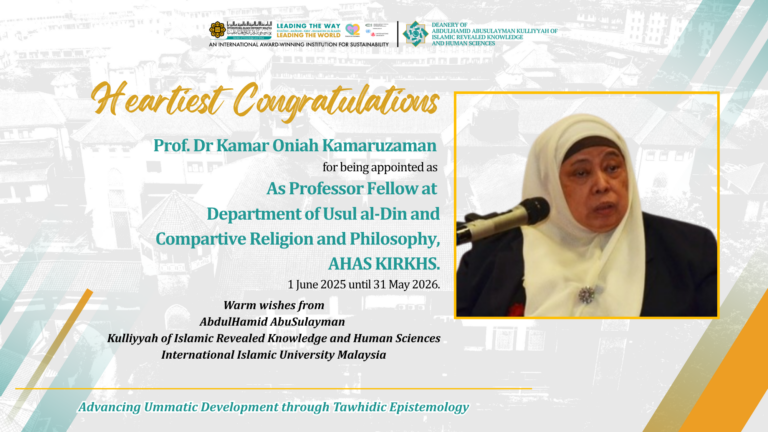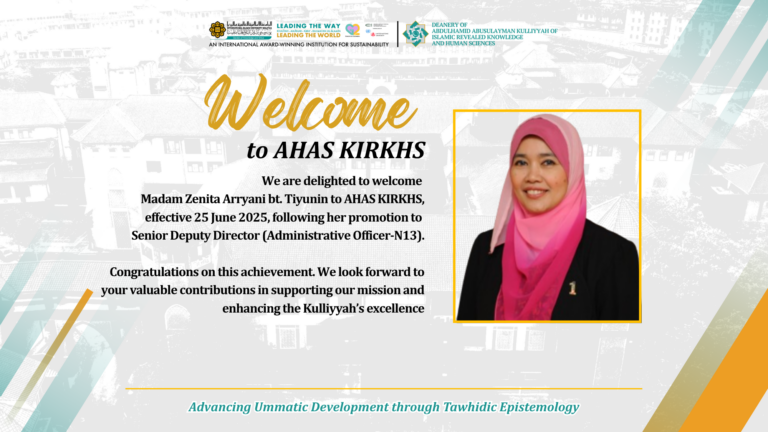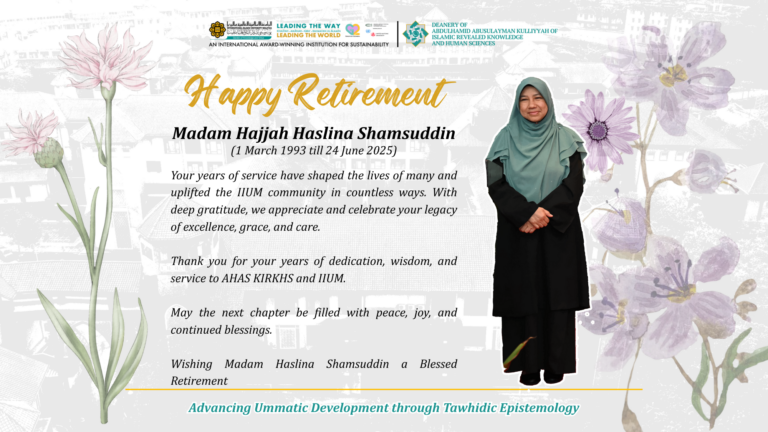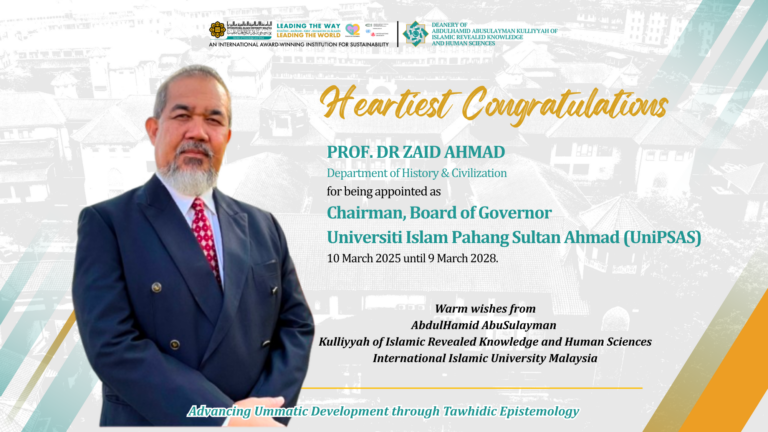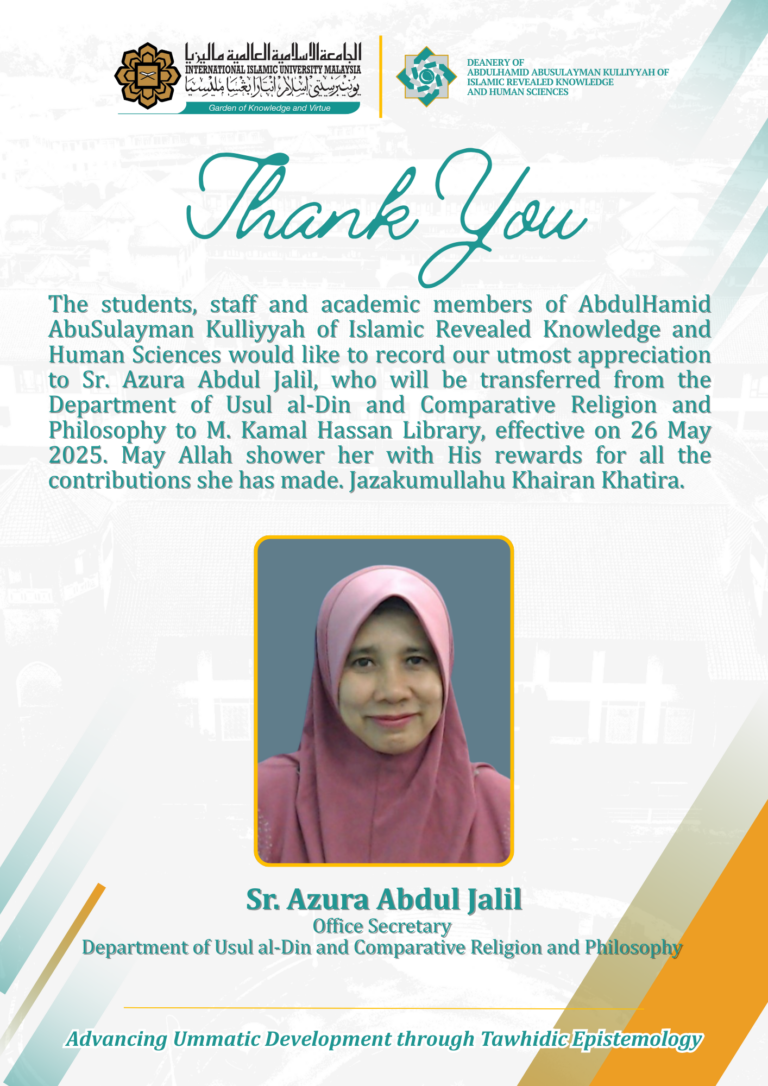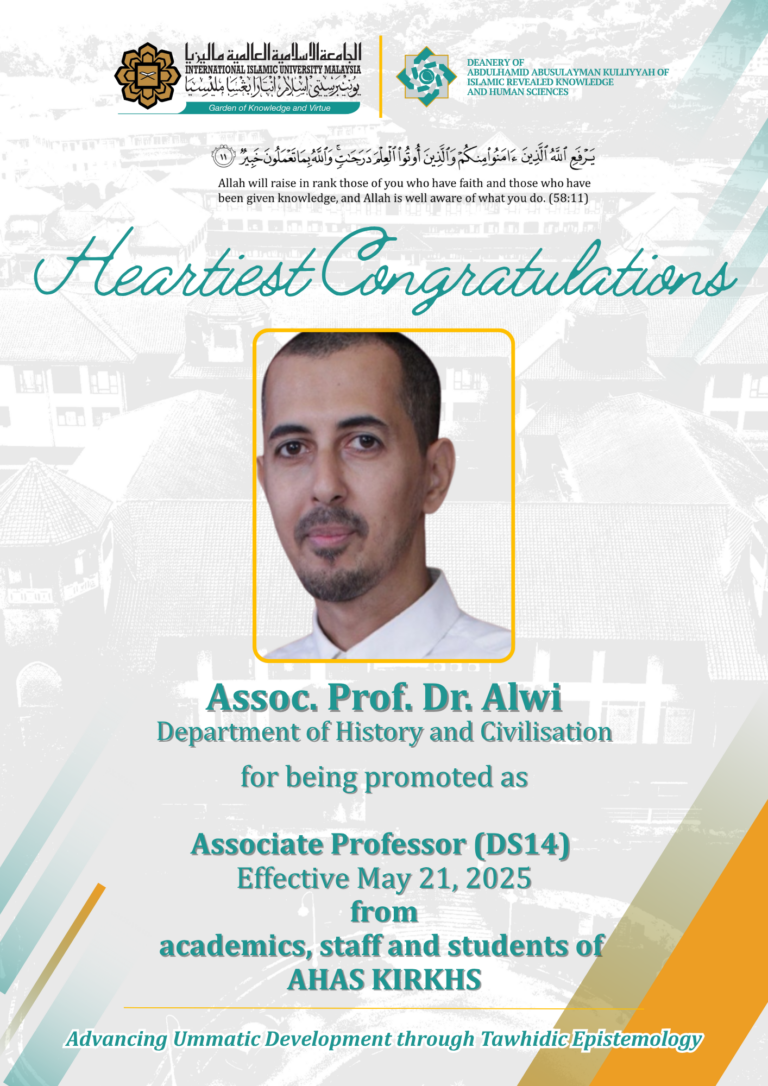
ABDULHAMID ABU SULAYMAN KULLIYYAH OF ISLAMIC REVEALED KNOWLEDGE AND HUMAN SCIENCES
The Abdul Hamid Abu Sulayman Kulliyyah of Islamic Revealed Knowledge and Human Sciences was established in 1990. It is now the largest faculty in the University, with over 6,000 students and some 201 full-time academic staff. Its formation represents a drive to integrate Human Sciences and Revealed Knowledge disciplines.
News


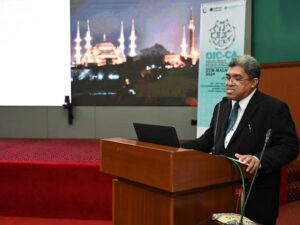
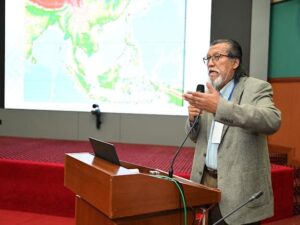
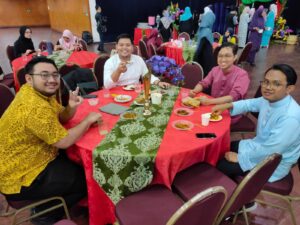
The OIC Secretariat and the International Islamic University Malaysia (IIUM) jointly inaugurated the OIC-CA 2024 event in Kuala Lumpur. This cultural activity, themed “Intercultural dynamics in South East Asia: current status, opportunities, and future perspectives,” was launched by AbdulHamid AbuSulayman Kulliayyah of Revealed Knowledge and Human Sciences. The seminar, held from April 22nd to 24th, 2024, under the banner “Cultivating wisdom, inspiring excellence, and shaping the futures,” featured addresses from H.E Ambassador Tariq Ali Bakheet and Her Royal Highness Tengku Ampuan Pahang Tunku Azizah Aminah Maimunah Iskandariah Binti AlMarhum Sultan Iskandar Al-Haj, the Constitutional Head of IIUM.
The first day was marked by robust intellectual exchanges, with diverse perspectives shared by speakers from various academic, institutional, and cultural backgrounds. The discussions focused on strategies to foster cultural understanding, mutual respect, peaceful coexistence, and beneficial partnerships. The role of the OIC in promoting cultural harmony among member states was highlighted, emphasizing culture as a potent tool for reaching broader audiences within and beyond the Muslim world.
The seminar continued over the following two days with panels addressing topics such as artificial intelligence, the role of intercultural dialogue in addressing contemporary challenges, the contribution of intellectuals in reducing societal conflicts through community engagement, and the status of intercultural dialogue in South East Asia.
Additionally, a side event highlighting the Israeli cultural genocide against Palestinian cultural, religious, health, and educational heritage was scheduled for the first day of the seminar.
Announcement
